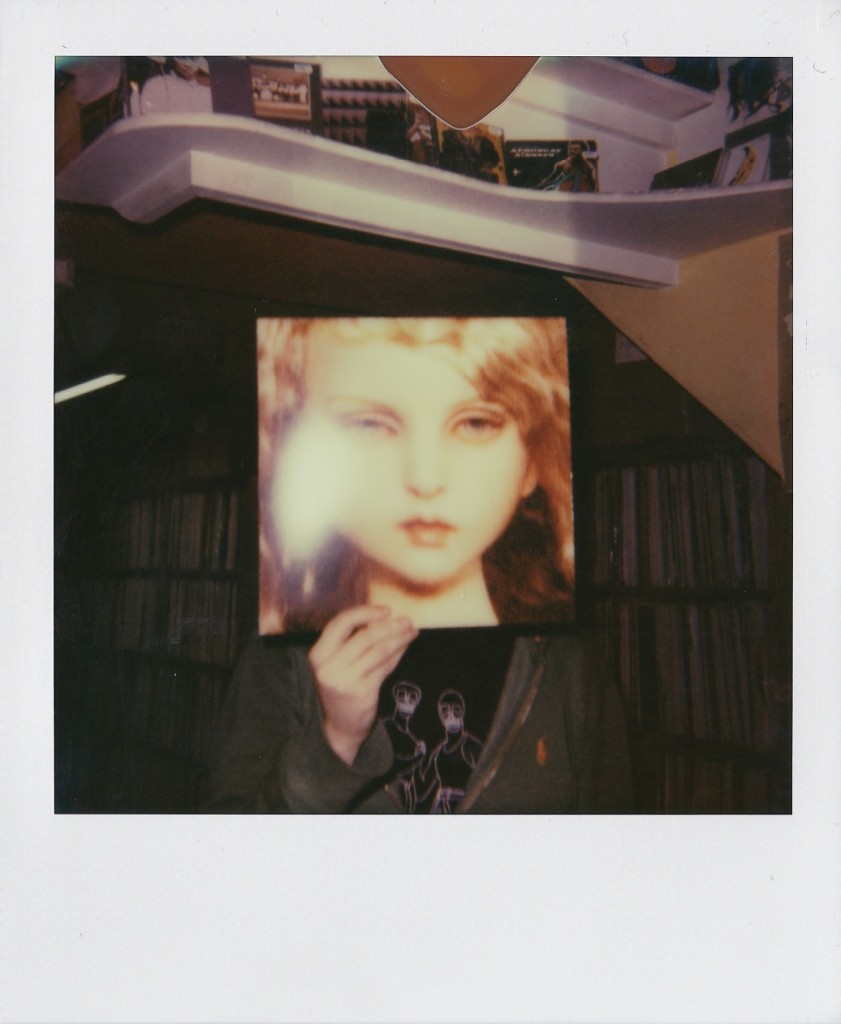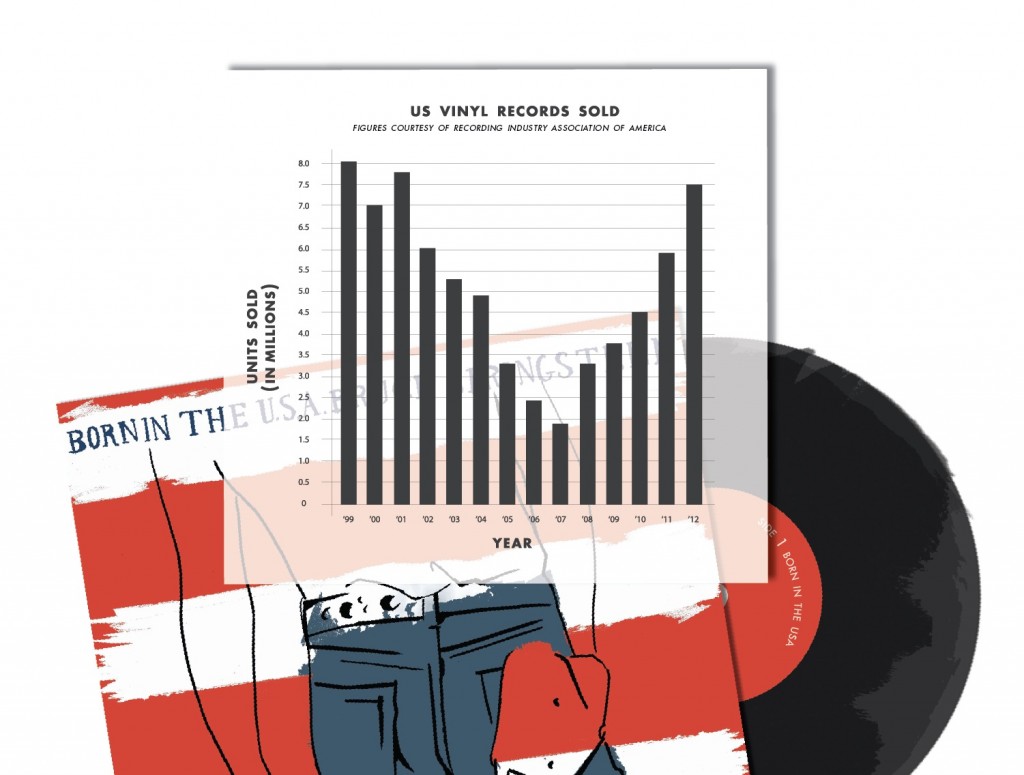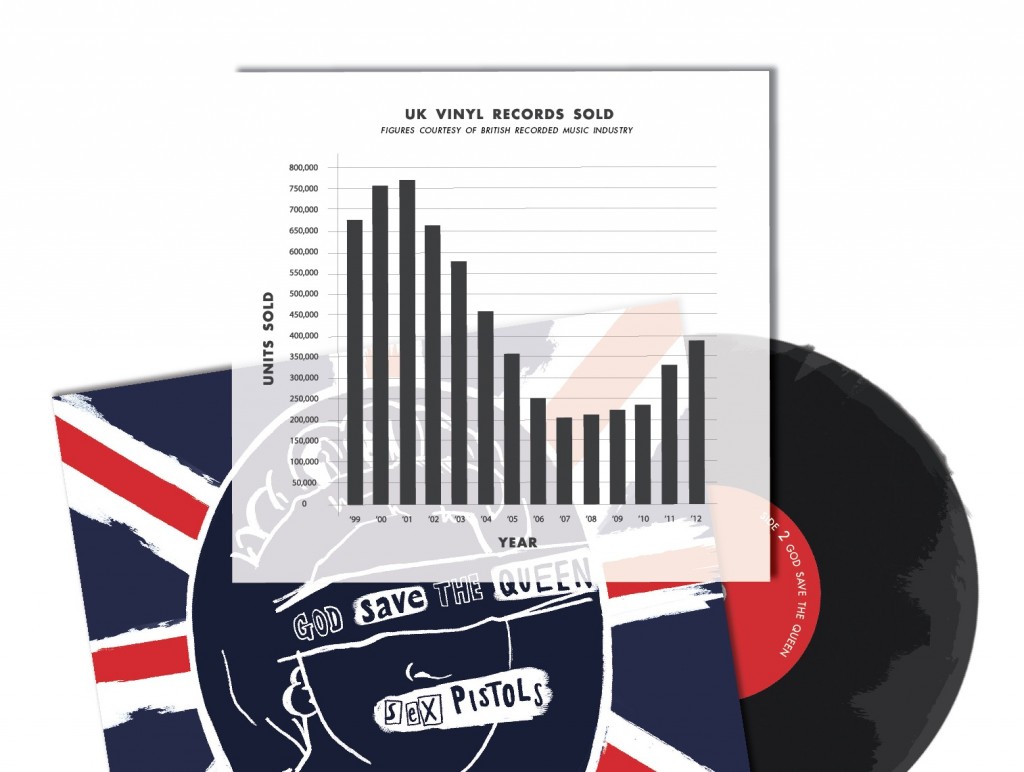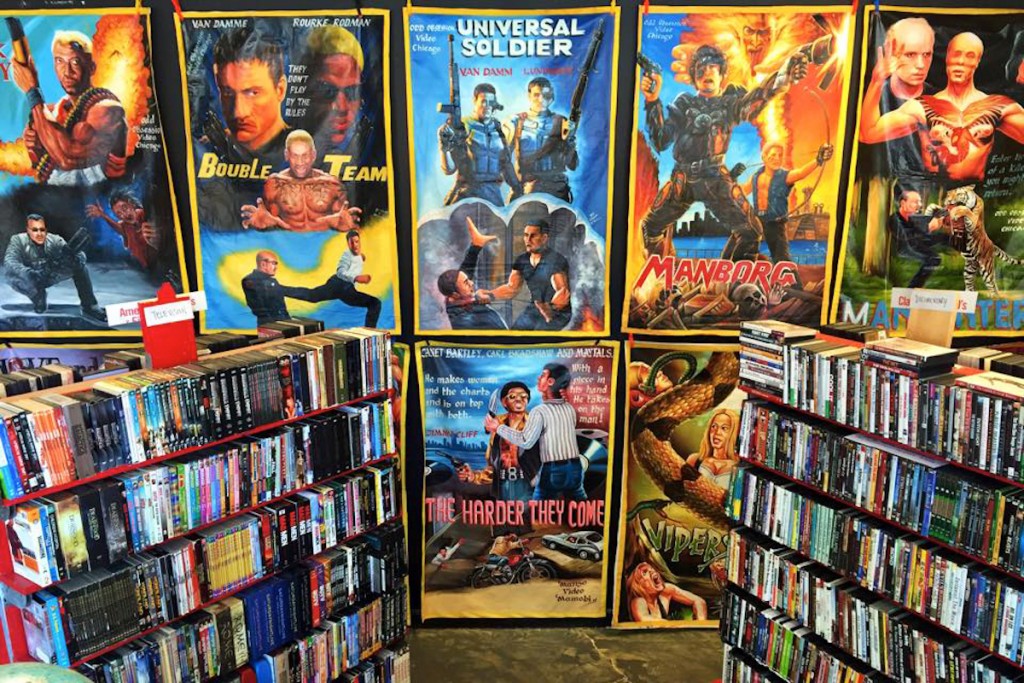VINYL — IT’S NOT LAST CALL
Vinyl records sales spin five year increase in US & UK with another record year afoot.
Illustrations By Carmi Cioni
In the future vinyl recording will be extinct and replaced by a superior alternative format – the cassette tape. Reach Out International Records proclaimed this farcical premonition in a print ad for their artists in 1982.
“You will never buy another record,” the banner boldly stated. “The new wave of the future is here today: album length cassettes with performances not available on vinyl!”
The New York underground label heavily endorsed cassette production in recognition of the recently released Sony Walkman that was revolutionizing music listening habits. Releasing on cassette was also economically viable for the label, and a contractual maneuver so certain bands could be released without impinging on record contracts.
Nevertheless, 31 years after its foreboding proclamation and the revolutions of CD and digital platforms, vinyl records are still not extinct. In fact vinyl sales have dramatically risen in the US and UK. With the latest sales figures recently released, vinyl is aiming to close 2013 with a steady six year increase in both countries.
The paradox, however, doesn’t come as news for many of the independent retailers on both continents. Louis Charette, owner and operator of The Groove located in East Nashville – America’s Music City, has been selling more vinyl than anything else in his store since it opened in 2007.

“The typical answer by someone in my position is that it’s something you can hold on to. It’s the art work. It’s the liner notes. It’s the sound quality,” Louis explained. “With iTunes and so on, people want instant gratification. It’s a lot of disposable music and a lot of stuff based off one single. I think the resurgence of vinyl has helped music in ways where people are looking at it as an overall package and product.”
Americans have been looking at the overall package celebrating the new and classic sourcing high and low from Chicago’s Reckless Records to Cali’s Amoeba Music and NYC’s Permanent Records.
Last year’s vinyl charts were led by Nashville’s own Jack White’s Blunderbuss album followed by The Beatles’ Abbey Road. Approximately 7.5 million vinyl LP and singles were sold in 2012, which was the highest its been since 2001 selling 7.8 million, according to the Recording Industry Association of America.

“As far as titles go, customers will buy brand new vinyl albums like the Arctic Monkeys, and then they’ll buy reissues likeBlur, Radiohead and the Beatles,” said Tony Davis, co-owner and operator of Casbah Records in London.
Tony has been in the music selling business with his brother Graham for over 25 years experiencing the platform shifts and vinyl resurgence. However, “the last two years has been the most noticeable increase,” he said.
This year so far approximately 550,000 vinyl albums have been sold in the UK, which is the highest point it’s been in a decade. The vinyl sold is being led by Daft Punk’s album Random Access Memories, followed by Arctic Monkeys’ AM andDavid Bowie’s The Next Day. A huge boost this year also came from the 6th annual Record Store Day that generated over £2 million in sales.

“Vinyl isn’t in short supply, but record companies are having a hard time keeping up with the demand,” Tony said. He cites the earlier September release of the Arctic Monkeys, which instantly sold out. It then took over a month to restock.
“Those in the music industry are hedging their bets right now with vinyl production asking whether this could just be a flash in the pan,” Tony said.
Despite the resurgence vinyl only makes up a fraction of overall music sales. In the US it contributes to approximately 2 percent and .8 percent in the UK for overall music revenue. But its growing popularity and resiliency cannot be denied.
“If vinyl was going to phase out it would’ve done so in the 90s with CDs and digital coming into the market,” said Budgie who’s been working at his dad’s shop Honest Jon’s in London since he was 13. “There’s still a demand for the physical product and vinyl is the epitome of the physical product in music.”
Independent retailers are constantly questioning the tipping point on physical product sales.
“We’ve thought a couple times about phasing CDs and only selling vinyl. But every time that happens we sell a bunch of CDs that day and we forget about it,” Louis said.
At Casbah Records Tony says the shops sells 3 to 1 in favor of vinyl. “If anything is going to disappear, it’s going to be the CD.”
Budgie reiterates the sentiment, and adds vinyl’s importance in that there is some music that hasn’t made the crossover. “I listen to a lot of gospel music that is on American press, which I can’t get on CD.”
There’s no crystal ball that will predict what 31 years from now will look like. But what is evident is that despite the worst financial crisis across the globe, vinyl lovers did not scale back their purchasing habits of vinyl music, they increased it.
Related Reading







 @majesticdisorder
@majesticdisorder